A brief, strange history of net neutrality (including a ‘series of tubes,’ a dingo and James Harden)
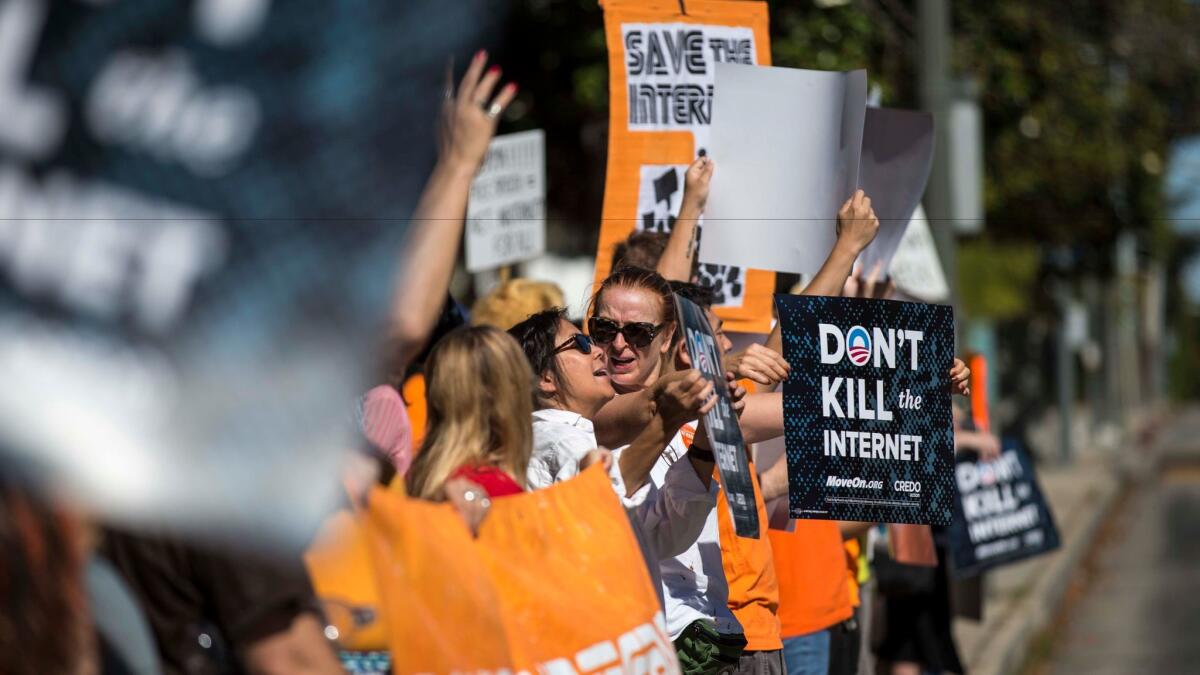
- Share via
It began as an academic subject with a wonky name — network neutrality.
But at its heart, the issue was simple: Internet service providers should treat all content equally.
Within a few years, the phrase — shortened to the slightly less-wonky net neutrality — became a rallying cry for Silicon Valley technology companies, liberals and online free-speech advocates.
For broadband companies and free-market conservatives, net neutrality became code for a government meddling in the vibrant Internet economy.
Now, after some bizarre pop culture moments, an embrace by a young senator on his way to the presidency, three major court rulings and more than 4 million public comments (and counting) to federal regulators, the term has become part of the online and political lexicon.
It’s in the spotlight again as the chairman of the Federal Communications Commission wants to dismantle tough net neutrality regulations enacted in 2015.
Ajit Pai, a Republican appointed to head the FCC by President Trump after his inauguration, is pushing the agency to repeal the tough regulatory oversight for Internet service providers that Democrats approved in 2015 over the objections of the broadband industry.
It’s been a long, strange trip — and it’s not over.
June 5, 2003
Fighting words
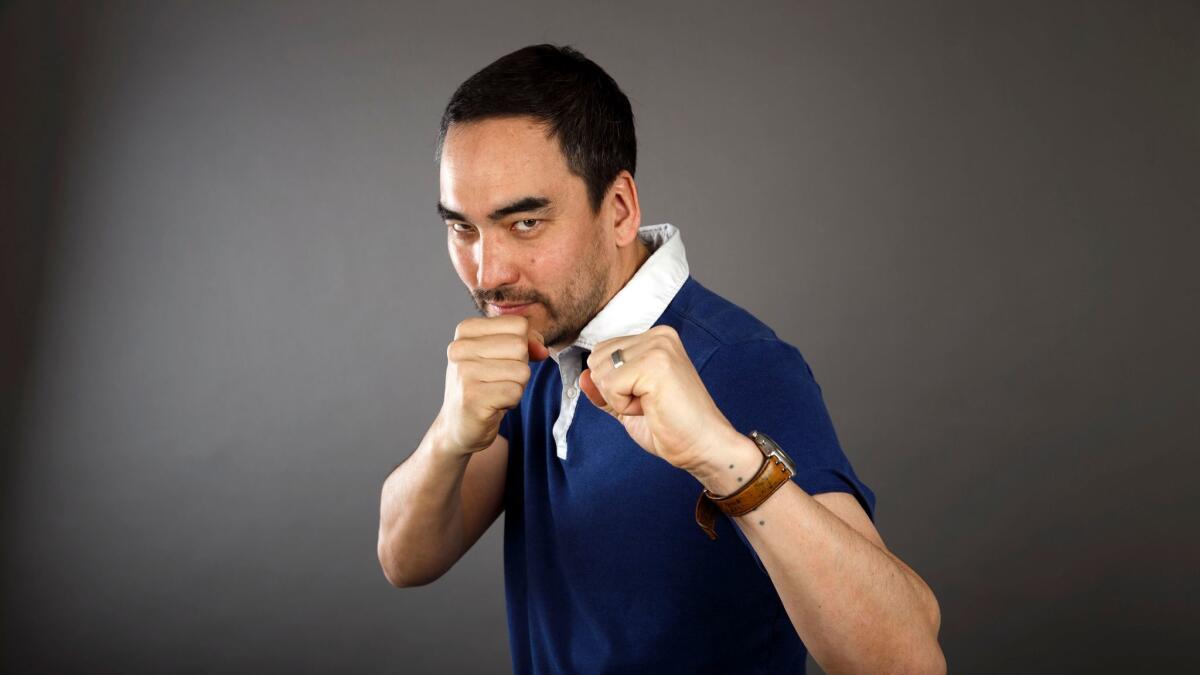
Eight months before a group of Harvard students launched a website called thefacebook.com and more than a year before Google Inc.’s initial public stock offering, a young associate professor at the University of Virginia, Tim Wu, coined the phrase network neutrality in a student-run academic journal.
His paper pondered the “conflicts between the private interests of broadband providers and the public’s interest in a competitive innovation environment centered on the Internet.”
For example, Wu discussed the possibility that cable companies could close off competition for certain Internet services by limiting access to what applications could be used on their networks.
Wu proposed to strike a balance that would “forbid broadband operators, absent a showing of harm, from restricting what users do with their Internet connection.” He would allow operators to manage technical aspects such as “bandwidth consumption” to keep the network operating properly.
The concepts were mostly academic, but the real-world conflicts Wu pondered were on their way.
Aug. 5, 2005
The FCC’s four freedoms
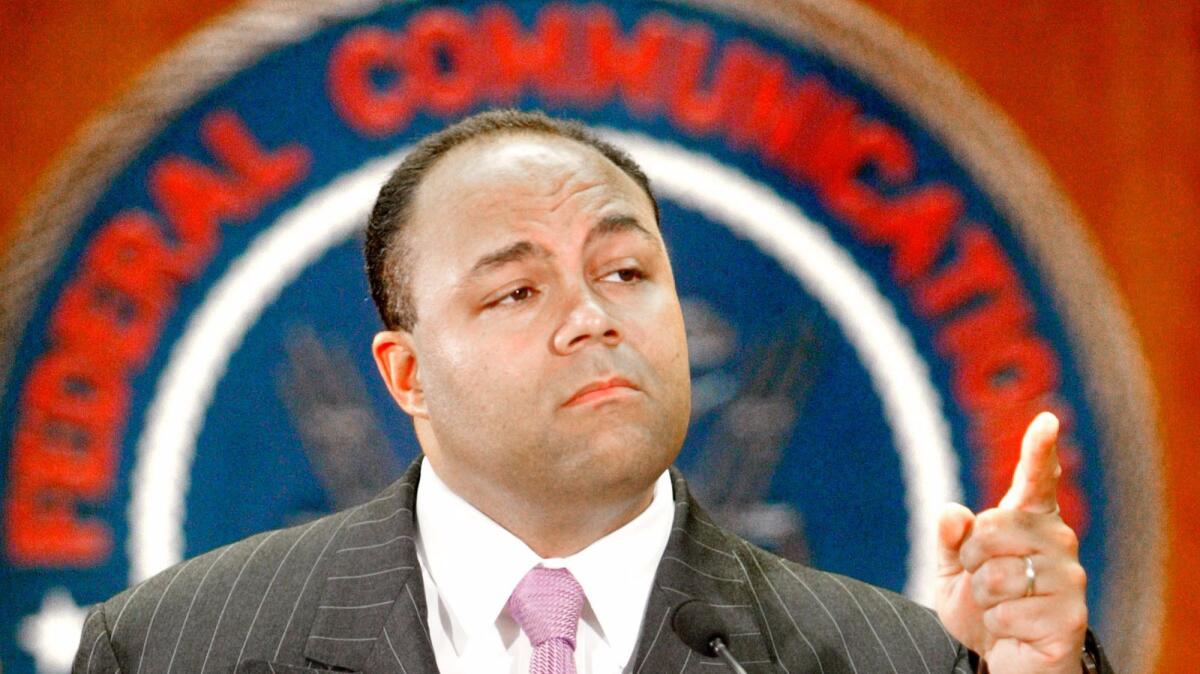
The Republican-controlled FCC unanimously adopted four principles “to encourage broadband deployment and preserve and promote the open and interconnected nature” of the public Internet.
Later to be known as the four freedoms, they were based on principles outlined in a 2003 speech by former FCC Chairman Michael Powell, a Republican, and said that consumers were entitled to:
- Access the lawful content of their choice
- Run applications and services of their choice
- Connect their choice of legal devices that do not harm the network
- Have competition among network, application and content providers
Powell said that broadband customers at the time “generally” enjoyed broad freedom in how they used the Internet. But he acknowledged that “we must steer clear of obstacles that could appear on the horizon” as “high-speed Internet continues to evolve rapidly and somewhat unpredictably.”
Among the concerns at the time were restrictions by cable companies on customer use of virtual private networks and Wi-Fi. But he said the case for government regulations was “unconvincing and speculative.”
In its 2005 vote, taken after Powell left the agency, the FCC did not adopt net neutrality rules but said it would incorporate the principles in its policymaking.
Foreshadowing the political fights to come, Democratic Commissioner Michael Copps said he would have preferred a formal rule that would allow the agency to take enforcement action.
He echoed growing concerns that broadband providers would become what he called “Internet gatekeepers,” preventing customers from using their connections to make phone calls, stream video or access particular websites.
Nov. 7, 2005
Calling Google “nuts”
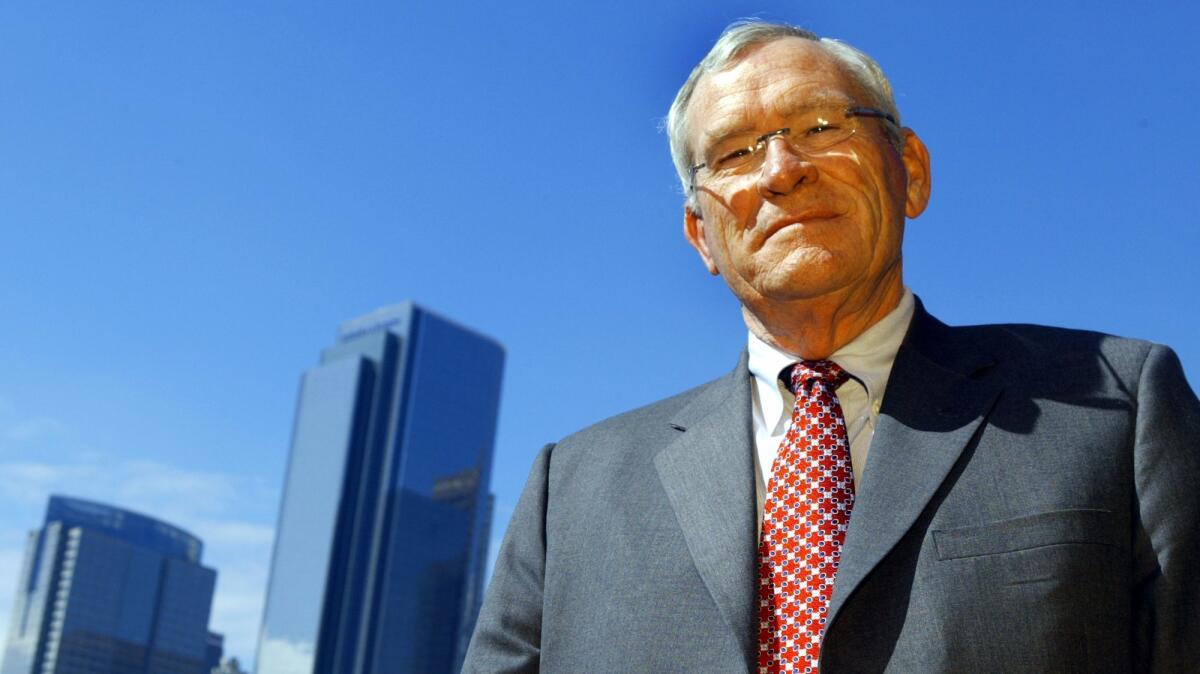
Edward E. Whitacre Jr., chief executive of SBC Communications Inc., fueled concern about Internet gatekeepers and ignited the net neutrality issue when he said Google Inc. and Yahoo Inc. were "nuts" for expecting free use of his company's network to deliver their content.
Whitacre told BusinessWeek magazine that websites would have to pay to access customers via the Internet connections his telecommunications company had built.
“Now what they would like to do is use my pipes free, but I ain't going to let them do that because we have spent this capital and we have to have a return on it,” said Whitacre, who would become head of AT&T Inc., after SBC bought the company a year later and took its legendary name.
The fight had begun — online and in Washington. That’s when things started to get a little strange.
June 28, 2006
A senator goes tubular
Pushed by Google and other Silicon Valley companies, some members of Congress — mostly Democrats — tried to add the FCC’s net neutrality principles to a Republican-drafted overhaul of the nation’s telecommunications law.
Sen. Ted Stevens (R-Alaska), who wrote the legislation, didn’t want to place restrictions on telecommunications companies. And at a hearing of the Senate Commerce Committee that he chaired, the 82-year-old Stevens gave a rambling speech describing the Internet as “a series of tubes.” The digital rights group Public Knowledge posted an audio clip of the speech on the Internet and it started spreading like wildfire through those tubes.
Comedy Central’s “The Daily Show With Jon Stewart” seized on Stevens’ comments, helping bring awareness of net neutrality to the masses.
Stewart said that Stevens sounded like "a crazy old man in an airport bar at 3 a.m."
It reinforced the image that many in Congress weren’t tech-savvy enough to deal with net neutrality. Vint Cerf, a Google executive known as a father of the Internet, said at the time that he was considering creating a comic book to show lawmakers how the network operated.
Opponents of net neutrality regulations said it didn’t matter because the rules were a solution in search of a problem. There were no high-profile examples of broadband providers choking off competitive content.
That was about to change.
Aug. 2, 2008
The solution finds its problem
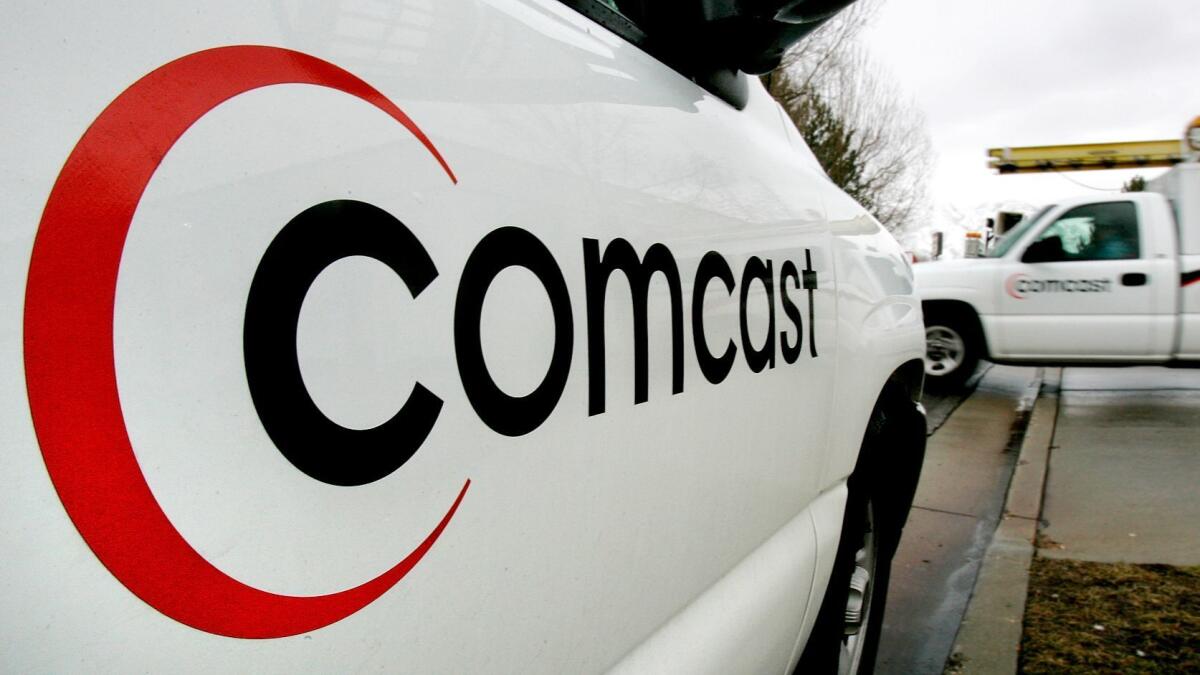
An Associated Press report in late 2007 claimed that Comcast Corp. was blocking some customers from using BitTorrent's popular software to download online videos.
Public-interest groups complained to the FCC. And they got action. By a 3-2 vote, the Republican-controlled agency found that the cable company had tried to cripple online video sites that competed with its on-demand service. The move violated the FCC’s four Internet freedoms.
The FCC’s Republican chairman, Kevin J. Martin, sided with two Democratic commissioners in rebuking Comcast. The company was ordered to stop the blocking but wasn’t fined.
Comcast told the FCC it would see it in court.
May 15, 2014
Trying to thread the needle
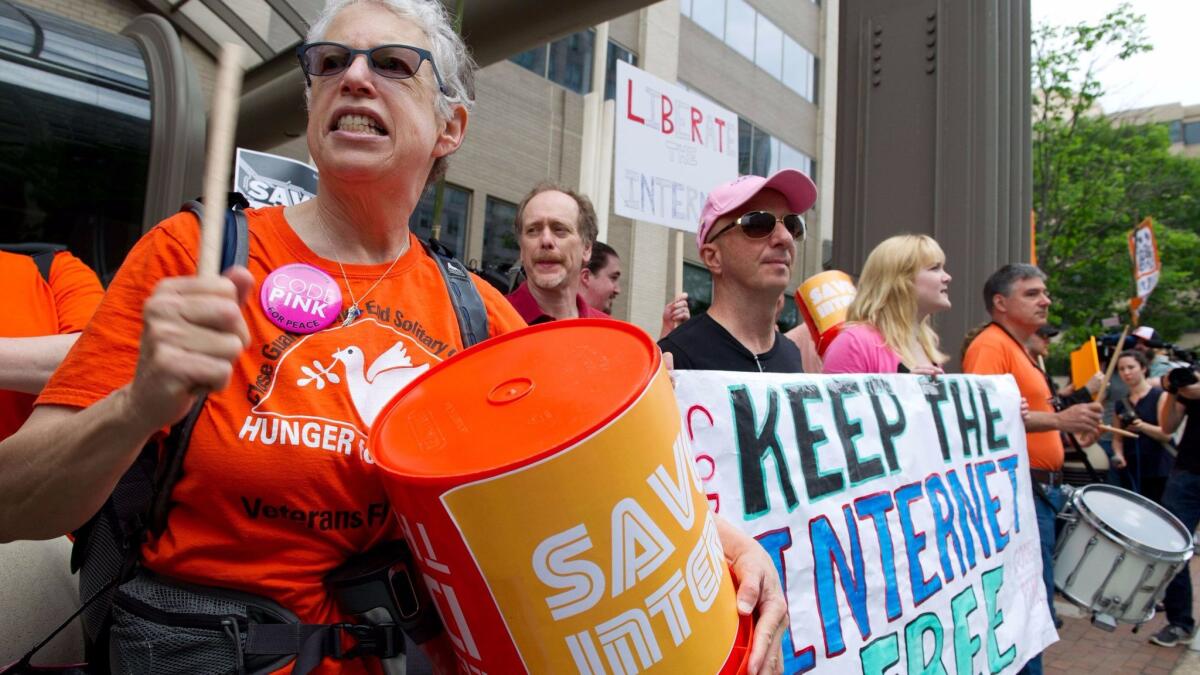
Judges were not kind to net neutrality.
In 2010, a federal court tossed out the FCC’s rebuke of Comcast and said the agency lacked the authority to enforce its net neutrality principles.
The FCC now was controlled by Democrats and chaired by Julius Genachowski. He had been appointed by President Obama, who had embraced net neutrality regulations as a senator and then during his campaign.
Genachowski was the next FCC chairman to take a crack at net neutrality. In 2010 the agency voted 3-2 along party lines to adopt its first-ever formal regulations on net neutrality, prohibiting Internet service providers from blocking access by their customers to any legal content, applications or services.
This time Verizon Communications Inc. sued. In January 2014, a court sided with the industry again, saying the FCC still hadn’t used its limited authority correctly.
Genachowski had stepped down and Obama replaced him with Tom Wheeler, a hard-charging former cable TV and wireless industry lobbyist.
Wheeler tried to thread the legal needle by establishing new regulations prohibiting broadband providers from discriminating against online data but not specifically outlawing charging some sites for faster delivery of their content, a concept known as paid prioritization.
His plan pleased neither side.
Republicans complained that it was too much government interference.
And net neutrality supporters weren’t happy either. They wanted Wheeler to ban paid prioritization and pass rules that they hoped would withstand industry lawsuits by classifying broadband providers as more highly regulated utilities like conventional phone companies under Title 2 of the telecommunications law.
As the FCC voted 3-2 to start a formal rulemaking procedure, net neutrality backers protested outside the FCC’s Washington headquarters and briefly disrupted the meeting as they urged the agency “Don’t break the Internet.”
Wheeler still thought that he had found a workable middle ground. Then another TV comedian changed the debate again.
June 1, 2014
Attack of the dingo
HBO’s “Last Week Tonight With John Oliver” took on the issue of net neutrality and aimed some of its fire at what it said was Wheeler’s industry-friendly rules.
“The guy who used to run the cable industry’s lobbying arm is now running the agency tasked with regulating it,” Oliver said on the show.
“That is the equivalent of needing a babysitter and hiring a dingo,” he said.
The wolves were out for Wheeler’s plan. Oliver’s bit went viral (the video clip has been viewed about 12.8 million times), helping fuel so many public comments that the FCC’s website crashed as a filing deadline approached. Most of the 4 million comments supported tough regulations.
Wheeler’s proposal was in trouble. Then another online video — this one from the White House — helped push the plan over the edge.
Nov. 10, 2014
Obama weighs in
Obama had been an early supporter of net neutrality. In 2007 he was one of 11 senators who signed on as co-sponsor of a bill to write net neutrality protections into federal law.
Obama touted his support for net neutrality during the 2008 campaign, in contrast to the opposition of his opponent, Sen. John McCain (R-Ariz.). That led some to suggest that Obama was the more tech-savvy Mac while McCain was the stodgy PC, a takeoff on an Apple ad campaign at the time.
Net neutrality was a big deal to Obama. And as the FCC was nearing a vote on Wheeler’s proposal, Obama took the unusual step of going public with his views on a matter being considered by the independent agency.
In a two-page statement and an online video, Obama pushed the FCC to enact the toughest possible regulations by reclassifying broadband providers for utility-like oversight.
Wheeler said there was “more work to do” on his proposal and a vote was delayed.
Feb. 26, 2015
Democrats join hands
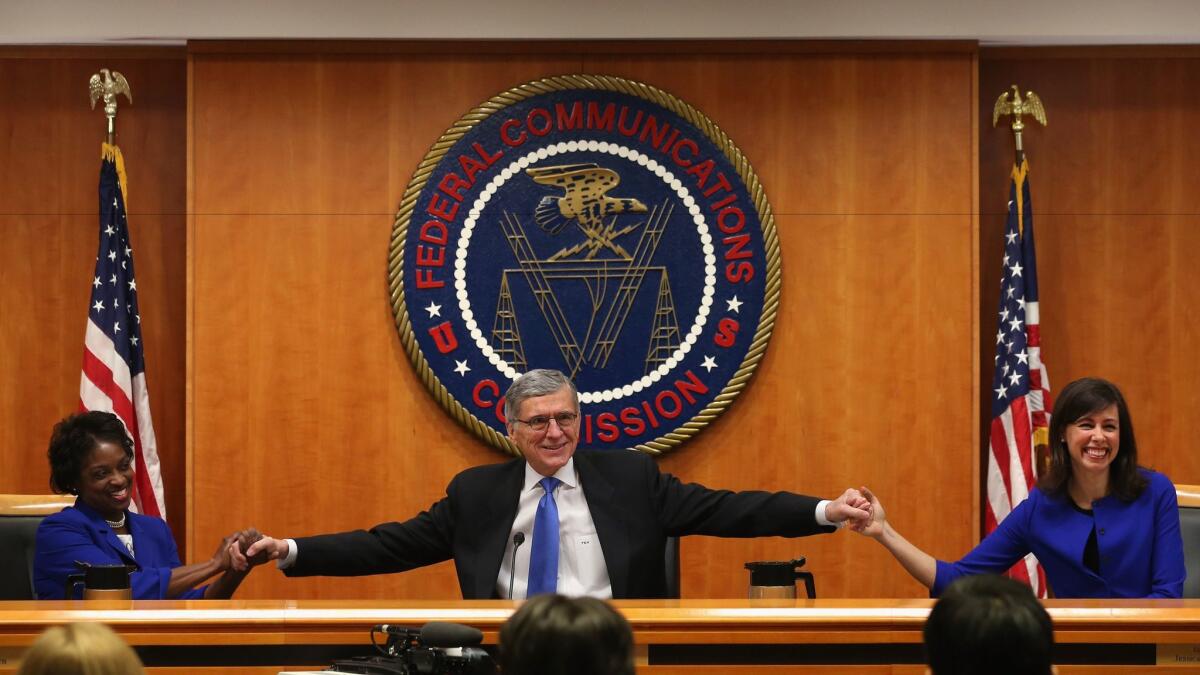
The debate over net neutrality raged online and in Washington. Sen. Ted Cruz (R-Texas) said tough net neutrality regulations were “Obamacare for the Internet.”
On Feb. 4, 2015, Wheeler released a revised proposal that prohibited broadband companies from blocking websites, slowing connection speeds and charging for faster delivery of content — and subjecting those providers to the utility-like oversight Obama sought.

Two committees in the Republican-controlled Congress launched investigations into whether Obama had improperly influenced Wheeler. An FCC official said Wheeler’s view had already been evolving before Obama’s statement.
Pai, one of two Republicans on the FCC, blasted what he called a "secret plan to regulate the Internet" that "opens the door to billions of dollars in new taxes" on broadband services.
Net neutrality supporters cheered Wheeler’s revised proposal and jubilantly packed the FCC’s meeting room the day of the vote.
Before the meeting began, Wheeler symoblically joined hands with his two Democratic colleagues. They were ready for what many called a landmark moment for the Internet.
The regulations were approved along party lines by a 3-2 vote that installed the once-arcane concept of net neutrality as a guiding government doctrine for broadband networks.
AT&T Inc. joined other telecom companies and industry trade groups in suing the FCC, saying it overstepped its authority in classifying broadband service for utility-like regulation.
In June 2016, a federal appeals court panel dismissed the suit.
Less than five months later, Americans elected Republican Donald Trump as president. In 2014, he had slammed Obama’s plan as “another top-down power grab.” Now Trump was in position to install a new FCC chairman.
April 26, 2017
Republicans seek a blocked shot
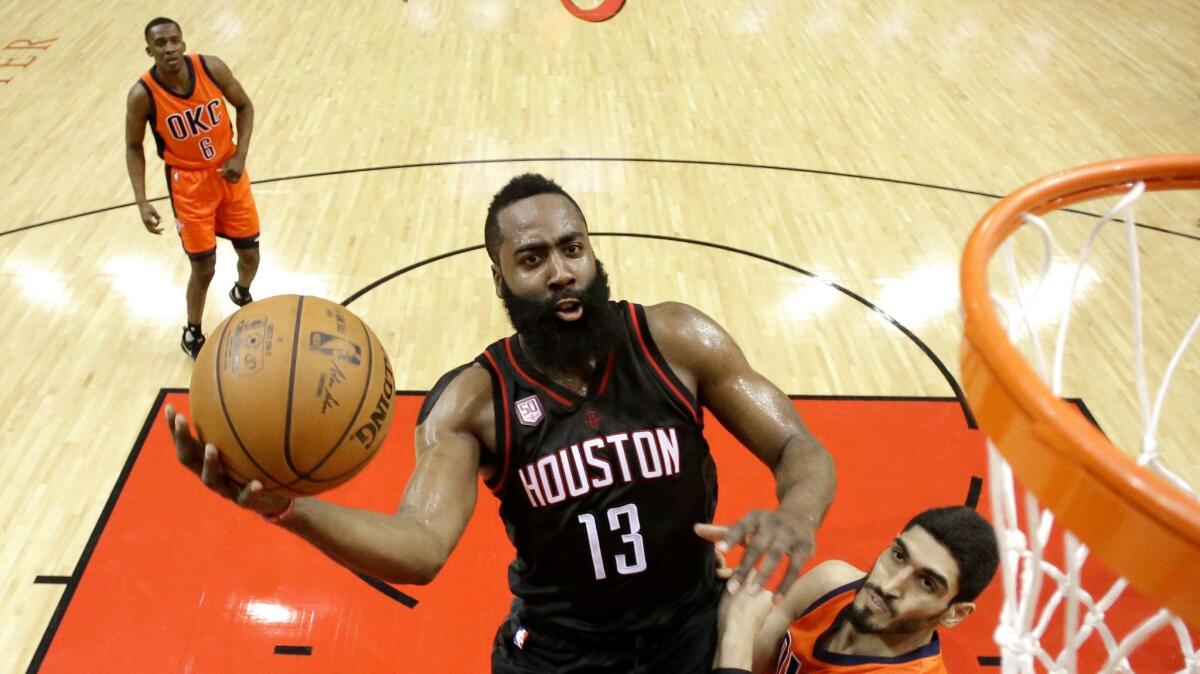
Pai, who Trump appointed as chairman, is fond of making pop culture references and using plain language to describe complex telecommunications issues.
After the election, Pai said the agency needed to “fire up the weed whacker” to slash unnecessary regulation. Net neutrality was the biggest weed on his list.
Net neutrality supporters tried to dissuade him, showing up at an FCC meeting and urging him to keep the tough rules by performing a live version of the Internet prank known as rickrolling.
Pai sang along, a sign that he was undeterred.
On April 26, he announced that he intended to push the FCC to rescind the utility-like oversight of broadband providers.
And in an opinion article in the Los Angeles Times, Pai reached into the NBA to help explain why he wanted to block the FCC’s net neutrality shot.
He noted that in 2012, the Oklahoma City Thunder had a young trio of outstanding players that included James Harden. But fearful that their salaries at some point would be unaffordable, the team traded Harden to Houston.
He went on to become a superstar, and this spring led the Rockets over the Thunder in the first round of the playoffs.
“Many Thunder fans would give anything to undo a trade motivated by speculative fears,” Pai wrote.
The fears were similar to those behind the FCC’s decision to enact utility-like oversight for broadband providers, Pai said.
He called them “hysterical prophecies of doom” in a speech April 26. And the “overhang of heavy-handed regulation” imposed by the FCC was hurting the broadband industry and hindering investment in expanded networks, Pai said.
The regulations led the nation’s 12 largest Internet service providers to decrease their capital expenditures on broadband by $3.6 billion, or 5.6%, in 2016 compared with 2014, Pai said.
But net neutrality supporters dispute Pai’s claim of an investment drop.
Free Press, a public interest group, said securities filings showed that publicly traded Internet service providers increased their investments by 5% in the two years since the FCC’s tough net neutrality rules were adopted compared with the previous two years.
“The industry’s actual investments and deployments, as well as its executives’ own statements to investors on how the rules haven’t harmed their businesses in the slightest, are more informative than Pai’s ideology-driven fantasies,” said Matt Wood, Free Press’ policy director.
Continuing the basketball analogy, Pai noted that Oklahoma City can’t get Harden back because he’s under contract with Houston until 2020. “But at the FCC, we can correct a past mistake by moving away from government control of the Internet,” Pai wrote. “And that’s exactly what we intend to do.”
Twitter: @JimPuzzanghera
Inside the business of entertainment
The Wide Shot brings you news, analysis and insights on everything from streaming wars to production — and what it all means for the future.
You may occasionally receive promotional content from the Los Angeles Times.








